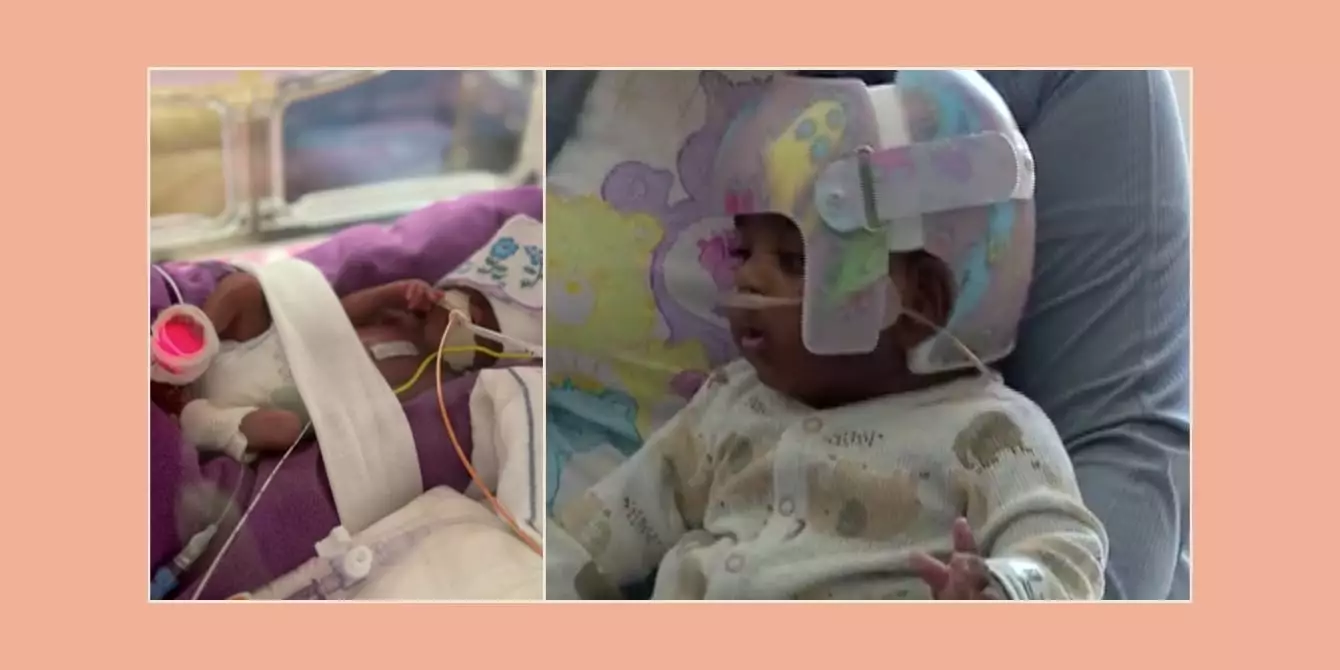The story of Baby Bilal isn’t just a narrative about survival; it is a stunning testament to the relentless spirit of human resilience and the remarkable advances in neonatal medicine. We often hear of medical breakthroughs and miraculous recoveries, but Bilal, born at just 23 weeks and weighing a mere 8 ounces, represents a pinnacle of hope that transcends numbers and statistics. His journey from the confines of the neonatal intensive care unit (NICU) to the warm embrace of home exemplifies the fusion of cutting-edge medical science and human perseverance.
Bilal’s birth into a rare set of quintuplets is an extraordinary feat in and of itself. Statistically, the odds of such a birth resulting in the survival of all five infants are staggeringly low, further compounded by their extreme prematurity. Medical professionals had given the Muhammad family a mere 10% chance of all five babies surviving, which elevates Bilal’s story to that of an astounding milestone in contemporary medicine.
A Year Defined by Hope
Hawa Muhammad, Bilal’s mother, often described their harrowing experience as living “by the hour.” Each moment was laden with both anxiety and a glimmer of hope. Throughout the year, her world revolved around the needs of five extraordinarily fragile newborns, yet it was Bilal who faced the steepest of mountains. Amidst the array of medical interventions and sleepless nights, his tiny existence was cradled by unyielding love and an impressive medical team that pushed the boundaries of possibility.
Doctor Thomas George, the medical director of neonatology at Children’s Minnesota, characterized Bilal’s survival as “nothing short of a medical miracle.” His assessment speaks volumes about the delicate dance between human life and the technology that supports it. Medical teams are often savants in critical care, and Bilal’s case is a clarion call to recognize the evolution of neonatal treatments that can secure life where there once seemed to be none.
The Power of Community and Support
The NICU, often a battleground of despair and hope, becomes a second home for many families facing similar trials. For the Muhammad family, the support they received from the staff and fellow families in the NICU created a sense of community that was vital for survival. Hawa’s experience evokes deep reflection on how critical emotional support can be during such trying times. The bonds formed under the harsh fluorescent lights of the NICU remind us of the unconditional strength that comes from shared experiences, reminding one another that they are not alone in their struggles.
As Hawa expressed her joy in finally bringing her children home, her words resonate not just with the joy of survival but also with profound appreciation for life itself. Her steadfast faith and strength highlight a narrative that is often overlooked in the discussions surrounding healthcare— the mental and emotional fortitude that families summon when faced with adversity.
Beyond the Hospital Walls
Bilal’s homecoming serves as a salient reminder that the road to recovery is not solely paved with medical advancements; it is also about the depth of human connection, the determination to overcome, and the warmth of familial love that surrounds a child. This is a profound moment, not only for the Muhammad family but also for the medical teams who invested their skills and hearts into Bilal’s survival.
As society becomes increasingly consumed with advancements in technology, Bilal’s story encourages a tangible appreciation for the softer, crucial aspects of healthcare—compassion, empathy, and community that uphold the very fabric of human connection. In a world often overshadowed by daunting statistics, the Muhammad family’s journey emerges as a narrative of hope that illuminates what is achievable when love and science converge.
Bilal’s life, though just beginning, already exemplifies that miracles are no longer relegated to folklore; they unfold in the moments between science and the warmth of unwavering parental love. His triumphant departure from the NICU is, indeed, more than a personal victory; it is a beacon of hope for families everywhere, reminding us that against all odds, life can bloom.

